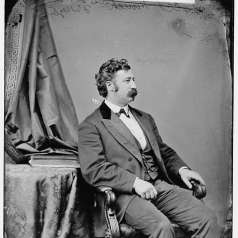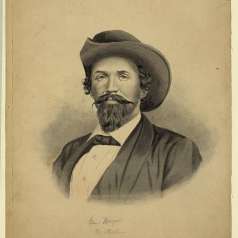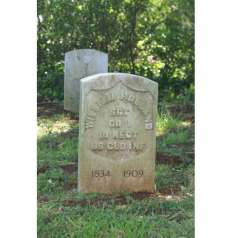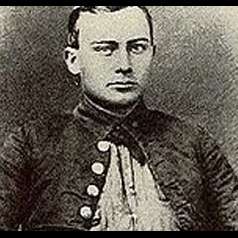
J. G. M. Ramsey started his education at Ebenezer Academy in Knox County before moving on to Washington College. Ramsey’s medical education began under Dr. Joseph Strong of Knoxville and finished at the University of Pennsylvania Medical School. He went on to become president of the Bank of Tennessee’s Knoxville branch. After becoming bank president, Ramsey focused on establishing a railroad system in East Tennessee and, by the 1830s, had become an active proponent of creating a railroad connection between Knoxville and Charleston. Overcoming many economic and political obstacles, the East Tennessee and Georgia railroad was established in 1848, and the first train reached Knoxville in 1855. By 1858, the northern portion of the line was completed all the way up to Virginia. Dr. Ramsey achieved renown as a prolific historian of the state’s early settlement period. He also strongly supported establishment of the East Tennessee Historical and Antiquarian Society (now the East Tennessee Historical Society) in 1834. Ramsey’s home, Mecklinburg, eventually became the repository for records owned by the Society, as well as a library and museum of East Tennessee’s past. In 1853, Ramsey published The Annals of Tennessee to the End of the Eighteenth Century, a significant contribution to the historical record. When civil war broke out in 1861, Dr. Ramsey unstintingly supported secession and subsequently received appointment as a treasury agent for the Confederacy. During the war, Union troops burned Mecklinburg and its library and museum collection. Ramsey and his family spent the rest of the war in exile in a number of places, eventually settling in Charlotte, North Carolina. While residing in North Carolina, Ramsey wrote his autobiography, Dr. J. G. M. Ramsey: Autobiography and Letters. Returning to Knoxville in the early 1870s, he lived out the rest of his years as president of the Tennessee Historical Society and a practicing physician. Ramsey died in 1884, having been a medical doctor, public official, religious leader, banker, railroad advocate, scholar, historian, and fervent secessionist.
Tools
Key Facts
- A practicing physician, became bank president
- Established East Tennessee and Georgia Railroad
- Supporter and co-founder of East Tennessee Historical & Antiquarian Society; author of 2 historical books
- Treasury agent for Confederacy






